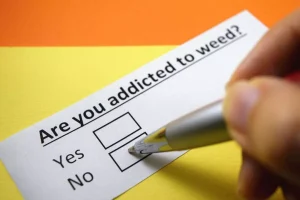
Without insulin, your cells won’t be able to use the glucose you consume for energy. Breath that has a fruity or acetone-like scent may be a sign of ketosis from your diet, DKA, HHS, excessive alcohol use, or liver disease. If you need help creating a nutritional plan to help control your blood sugar levels, ask your healthcare provider for a referral to a registered dietitian. Hyperglycemic hyperosmolar syndrome (HHS) is extremely high blood sugar that occurs in people with type 2 diabetes who don’t have their diabetes under control.
How Can Alcoholic Ketoacidosis Be Prevented?
Magnesium and phosphate levels should be measured and repleted if the serum levels are found low. Alcoholic ketoacidosis most commonly happens in people who have alcoholic ketoacidosis alcohol use disorder and chronically drink a lot of alcohol. But it can happen after an episode of binge drinking in people who do not chronically abuse alcohol.
- This buildup of ketones can produce a life-threatening condition known as ketoacidosis.
- Our expertise and experience in addiction treatment can provide the support needed to address this complex health issue.
- Prolonged vomiting leads to dehydration, which decreases renal perfusion, thereby limiting urinary excretion of ketoacids.
How can I prevent alcoholic ketoacidosis?
- Don’t hesitate to seek help and begin your journey towards recovery.
- With these tests, the doctor could find evidence of diabetes, which will require specialized treatment.
- Having too many ketones in the bloodstream is known as a dangerous condition called ketoacidosis.
- In contrast to diabetic ketoacidosis, the predominant ketone body in AKA is β-OH.
Excessive drinking can lead to frightening conditions like ketoacidosis. The risk of developing this condition is one of the reasons an alcohol use disorder is dangerous. Though alcoholic ketoacidosis can be reversible, it’s best to prevent it by limiting alcohol intake and never consuming alcohol on an empty stomach. For those with alcohol use disorders, professional treatment is necessary to stop excessive drinking. Excessive drinking damages the pancreas, impacting insulin production.
What are the complications of alcoholic ketoacidosis?
Triglycerides stored in adipose tissue undergo lipolysis and are released into the circulation as free fatty acids bound ionically to albumin. Free fatty acids are removed by the liver, where they primarily undergo oxidation to hydroxybutyric acid and acetoacetate and subsequently are reesterified to triglyceride. Decreased insulin and elevated glucagon, cortisol, catecholamine, and growth hormone levels can increase the rate of ketogenesis. Generally, the physical findings relate to volume depletion and chronic alcohol abuse.
What is the Ketone Odor in Breath?

If you have diabetes, this scent can be a sign of diabetic ketoacidosis (DKA), a condition that can be fatal if not treated. It most often occurs in a malnourished person who drinks large amounts of alcohol every day. This drop in blood sugar causes your body to decrease the amount of insulin it produces. Your cells need insulin to use the glucose in your blood for energy. If they can’t use glucose because there’s not enough insulin, your body switches to another method to get energy — breaking down fat cells. Your doctor may also admit you to the intensive care unit (ICU) if you require ongoing care.

When this happens, your cells will have to burn fat to produce energy. Having too many ketones in the bloodstream is known as a dangerous condition called ketoacidosis. As you might already know, those with type one diabetes are unable to produce enough insulin. Without insulin injections, they’re likely to end up in a state of ketoacidosis. Alcoholic ketoacidosis is a metabolic complication of alcohol use and starvation characterized by hyperketonemia and anion gap metabolic acidosis without significant hyperglycemia.
Signs and symptoms of alcoholic ketoacidosis
In conclusion, addressing alcoholic ketoacidosis requires a multifaceted approach, including initial stabilization, nutritional support with a focus on thiamine, and long-term alcohol use management. By seeking proper treatment and guidance, you can take the necessary steps toward recovery and a healthier life. At Sabino Recovery, we understand the challenges you or a loved one might face when dealing with alcoholic ketoacidosis. Our expertise and experience in addiction treatment can provide the support needed to address this complex health issue. Don’t hesitate to seek help and begin your journey towards recovery. At Sabino Recovery, we understand the challenges that you or your loved one might face when dealing with alcoholic ketoacidosis and alcohol use disorder.
- Often, blood alcohol levels are no longer elevated when patients present with alcoholic ketoacidosis.
- If a person’s ketone levels are high, they should seek immediate medical treatment.
- Given the early recognition of AKA and concurrent management, our patient had a good outcome.
- Gum diseases, including gingivitis, can cause bad breath, but not breath that smells like acetone.
Why does my breath smell like acetone?
She was discharged home and has been well on follow-up appointments. Further biochemical investigation after treatment showed a rapid decline in the level of ketones and normalization of pH. If you’re following https://ecosoberhouse.com/ your treatment plan and your ketone level is moderate or high, call your doctor right away for help. You should also contact your doctor if you don’t have diabetes and are worried about a lasting acetone scent.


The length of your hospital stay depends on the severity of the alcoholic ketoacidosis. It also depends on how long it takes to get your body regulated and out of danger. If you have any additional complications during treatment, this will also affect the length of your hospital stay. Each of these situations increases the amount of acid in the system.
Other causes of acetone-like breath
When the breath of a person with diabetes smells like acetone, they should check their blood sugar levels. If you are diagnosed with alcoholic ketoacidosis, your recovery will depend on a number of factors. Seeking help as soon as symptoms arise reduces your chances of serious complications. Treatment for alcohol addiction is also necessary to prevent a relapse of alcoholic ketoacidosis. Glucose comes from the food you eat, and insulin is produced by the pancreas. When you drink alcohol, your pancreas may stop producing insulin for a short time.



ความเห็นล่าสุด